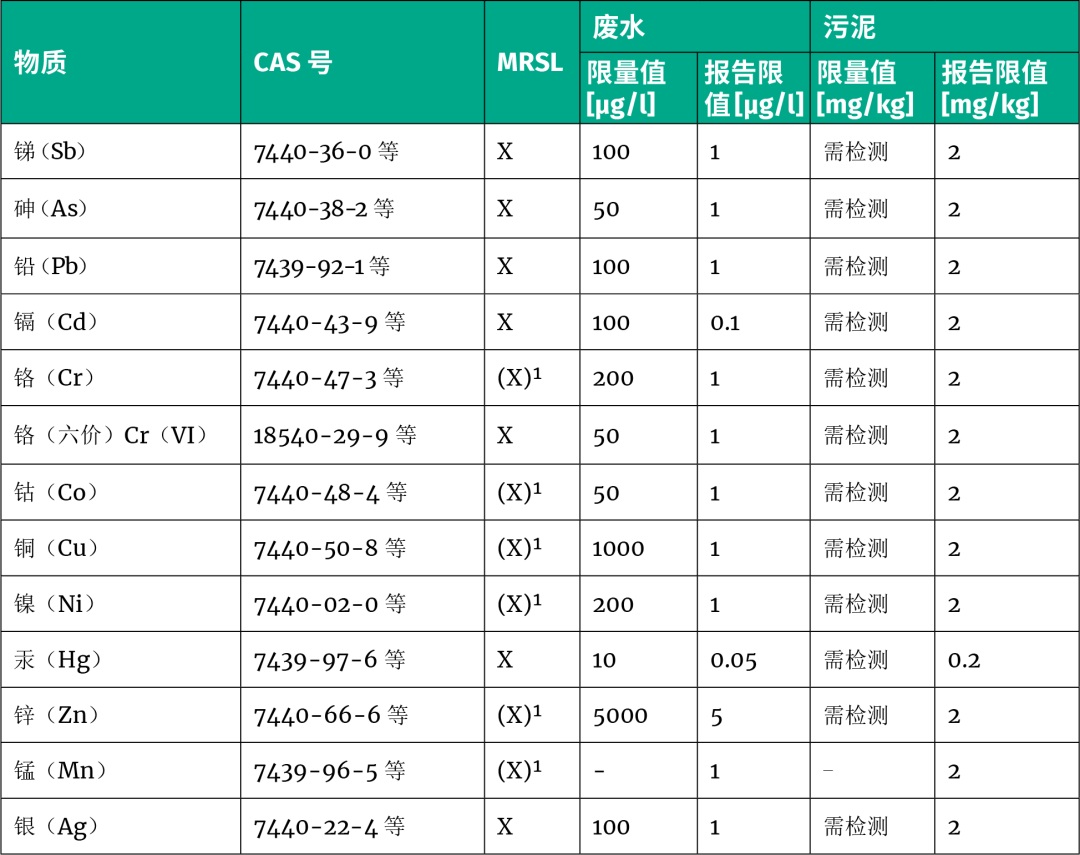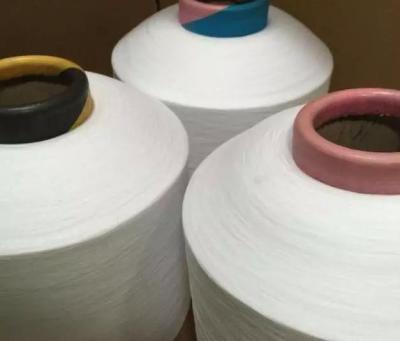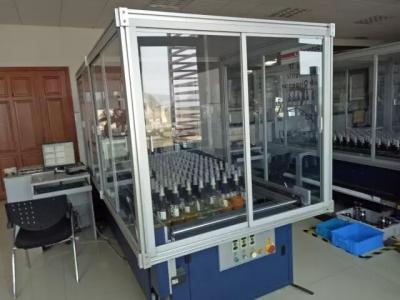Establishing trust in the textile and leather industry, creating trust for customers, is the mission of OEKO-TEX®. Consistently excellent quality is the cornerstone of gaining trust. To continuously ensure quality, the OEKO-TEX® association will update the applicable certification testing standards, limit values, and guidelines.
The OEKO-TEX® association has published annual updates on testing standards, limit values, and guidelines based on the latest scientific findings and legal regulations. The new regulations will officially take effect on April 1, 2024, after the regular transition period ends (except for the PFAS limit values). The new total fluorine (TF) limit value replaces the previously extractable organic fluorine (EOF), which came into effect on January 1, 2024, aiming to ban the intentional use of PFAS. The new regulations also added standards for foam cotton, microplastics, GMO genetically modified organisms, and SVHC consistency.
Hainsstein, as the founder and official certifying body of OEKO-TEX®, will guide everyone through the detailed changes of OEKO-TEX® 2024 new regulations.
New limit requirements for PFAS total fluorine content
OEKO-TEX® has replaced the extractable organic fluorine (EOF) testing method with total fluorine. Starting from January 1, 2024, OEKO-TEX® STANDARD 100, ECO PASSPORT, LEATHER STANDARD, and ORGANIC COTTON certification will adopt the new limit value of 100mg/kg. This update ensures that all OEKO-TEX® certifications comply with US PFAS-related regulations.
OEKO-TEX® STeP: Avoiding microplastic release
The updated OEKO-TEX® STeP standard will require certified production plants to actively identify and manage risks to reduce or directly avoid the release of microplastics during the production process. Currently, various stages of the production process face serious challenges due to microplastics. Therefore, the STeP standard provides corresponding solutions to promote harmonious cooperation between industrial practices and environmental protection, supporting STeP certified factories and issuing calls to action.
OEKO-TEX® STeP: Deepening cooperation with ZDHC
In 2024, ZDHC Supplier to Zero plan will offer a new discount to STeP certified enterprises:
ZDHC Initia-tive - STeP customers can enjoy free services
ZDHC Advance - STeP customers can enjoy a 50% discount
Enterprises that are already STeP certified and interested in participating in this program can contact OEKO-TEX® testing agencies to learn more.
OEKO-TEX® LEATHER STANDARD
Traceability of leather materials
The OEKO-TEX® LEATHER STANDARD, in accordance with EU legislation on deforestation, will place greater emphasis on the traceability of leather materials, requiring certification applicants to provide proof of the origin of raw materials.
OEKO-TEX® ORGANIC COTTON
Adjustment of genetically modified cotton limit values
The OEKO-TEX® ORGANIC COTTON certification aims to provide proof of reliability for organic cotton textiles. The certification first determines whether the sample contains genetically modified cotton through qualitative DNA analysis and then determines the proportion of genetically modified cotton in the sample through quantitative analysis. In addition to the harmful substance testing, the OEKO-TEX® ORGANIC COTTON certification specifies a GMO detection limit of less than 5%, reduced from the previous 10%, taking into account inevitable impurities.
Limit value directory update
The limit value directory for STANDARD 100 (Appendices 4 and 6), LEATHER STANDARD, ORGANIC COTTON, and ECO PASSPORT certifications has added some highly concerning substances (SVHC). For example, bis(4-chlorophenyl) sulfone and solvent 1,4-dioxane have been added, both of which can have adverse effects on human health and the environment.

Changes in PFAS

The standard will use total fluorine (TF) instead of the current EOF (extractable organic fluorine) limit value, aiming to ban the intentional use of PFAS. The limit values for all product levels have been adjusted to 100mg/kg. PPE is not subject to constraints on the total fluorine content.
Addition of substances in the limit value directory · SVHC substances

In the 2024 new regulations of OEKO-TEX®, apart from the PFAS limit value requirement effective from January 1, 2024, other content will take effect from April 1. Below are the detailed updates for each series of OEKO-TEX® certifications.
OEKO-TEX® STANDARD 100 2024 New Regulations
Adjustment of GMO limit values
Based on our experience last year, the GMO limit value has been reduced from 10% to 5% to effectively avoid using standard samples while considering unavoidable impurities.
Addition of volatile organic compounds VOCs project in Appendix 4
Appendix 4 now includes a section on volatile organic compounds. This measure aims to strengthen regulatory safety precautions to ensure consumer health. The transition period for this change is one year.
Exceptional provision for pH values
Due to the instability and small size of taffeta labels, an exception has been made for taffeta labels in the standard. The latest pH range allowed for this product is 4.0-9.0.
Microplastics in decorations
Following ECHA's inclusion of microplastics in decorative ingredients, we have also begun to ban the use of synthetic polymer microplastics in decorations.
Other changes
Formaldehyde: The limit value for formaldehyde has been removed from STANDARD 100.
OEKO-TEX® ECO PASSPORT 2024 New Regulations
Chemicals for foam production: Starting in 2024, ECO PASSPORT will expand its scope to include chemicals used in foam production. The section "4.3 Chemicals for foam production" has added relevant product categories.
Masterbatches: Masterbatches are added as a new product category along with highly absorbent polymers for accurate labeling of products and display in certificates and OEKO-TEX® procurement guidelines.
Self-assessment update: A section for self-assessment has been added to the ECO PASSPORT application form, no longer placing it in separate documents. In addition, while retaining highly relevant issues and topics, the length has been significantly reduced. This change will take effect on January 1, 2024.
OEKO-TEX® STeP 2024 New Regulations
ZDHC Supplier to Zero plan
STeP continues to deepen cooperation with ZDHC, and the ZDHC Supplier to Zero plan is ongoing. Starting in 2024, STeP certified enterprises will enjoy corresponding discounts when joining this plan. STeP customers who are already certified and interested in joining can contact OEKO-TEX® testing agencies.
Appendix 3 Group 11 in the sludge test related limit values
11. Heavy metals and their compounds

In addition to testing groups 1, 7, and 12, "Group 11: Heavy metals and their compounds" should also be tested in sludge (consistent with the requirements in the January 2022 version).
STeP Standard January 2024 Edition
The new standard expands its scope to include industrial laundries in applying for STeP certification. As the market demands for sustainability continue to increase, it is necessary to strengthen sustainability standards in the following modules through new exclusion criteria in the STeP standard.
OEKO-TEX® MADE IN GREEN 2024 New Regulations
Update to MADE IN GREEN criteria 1: The OEKO-TEX® ORGANIC COTTON is now included as a product certificate in the standard, alongside STANDARD 100 and LEATHER STANDARD.
Update to MADE IN GREEN criteria 3: Criteria 3 has been simplified by removing the 85% rule to ensure requirements are not lowered: less than 5% of the total product weight of a single component should be provided by a production facility certified by OEKO-TEX® STeP without reducing standards.
In addition, criteria 3 will now include wet spinning processes. Wet spinning processes will be mandatory in the standard after a two-year transition period. This can help existing MADE IN GREEN customers seamlessly adjust their supply chain to meet the new standards.
Additional: Only products that comply with STANDARD 100/ORGANIC COTTON/LEATHER STANDARD and STeP standards are eligible for the MADE IN GREEN label. For specific information on standard updates, please refer to the new regulation documents for the respective OEKO-TEX® products.
OEKO-TEX® LEATHER STANDARD 2024 New Regulations
Limit value updates
Phenol: LEATHER STANDARD has added a limit value of 100mg/kg for all product levels.
SCCP & MCCP: LEATHER STANDARD has reduced the total limit value for all product levels to 50mg/kg.
Origin of leather
Applicants must comply with EU Regulation No. 2023/1115 issued by the European Parliament and Council on May 31, 2023, concerning the provision and export of certain goods and products related to deforestation and forest degradation in the EU market, repealing EU Regulation No. 995/2010.
Over the past 30 years, the total forest area cut down globally has exceeded the total area of EU countries. The EUDR, Act (EU) 2023/1115 on deforestation, officially took effect in the summer of 2023. The Act stipulates that companies should strictly fulfill due diligence obligations if they export raw materials and goods within the range specified by the Act to the European market or place them on the European market.
OEKO-TEX® ORGANIC COTTON 2024 New Regulations
Adjustment of GMO limit values
Based on our experience last year, the GMO limit value has been reduced from 10% to 5% to effectively avoid using standard samples while considering unavoidable impurities.
Addition of volatile organic compounds VOCs project in Appendix 4
Appendix 4 now includes a section on volatile organic compounds. This measure aims to strengthen regulatory safety precautions to ensure consumer health. The transition period for this change is one year.
Inspection inspector sampling
In the future, we will arrange for inspectors to sample at spinning mills and cotton mills. These checkpoints are crucial in the supply chain and must prevent fraudulent activities.



 English
English  日本語
日本語  Español
Español  tiếng việt
tiếng việt  Türkçe
Türkçe  ไทย
ไทย  українська
українська  हिंदी
हिंदी  বাঙালি
বাঙালি  اردو
اردو 


